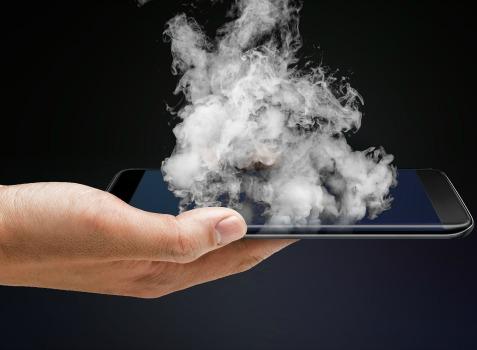Samsung Galaxy Note 7 Recall Will Cost Company Billions
In an Oct. 14 statement, Samsung estimated that the recall of its Galaxy Note smartphone will cost the company as much as $3 billion over the next several quarters. So far, Samsung has received 96 reports of overheating and fire associated with device.


10 Ways To Doom Your Next Mobile App
10 Ways To Doom Your Next Mobile App (Click image for larger view and slideshow.)
The recall of Samsung's Galaxy Note 7 smartphone is likely to cost to the South Korean company about $3 billion over the next several months, according to a statement released Oct. 14.
Samsung calculated that the recall will cost the company about 2 trillion won in the fourth quarter of this year, and another 1 trillion in the first quarter of 2017. Depending on estimates, 3 trillion won is worth between $2.65 and $3 billion. In order to make up for the loss, the company plans to ramp up sales of its Galaxy S7 and Galaxy S7 Edge devices.
"The company already allocated the expected direct cost from the discontinuation of Galaxy Note7 sales in its third quarter earnings guidance revision announced on Oct. 11, but expects the drop in revenue from the discontinued sales to continue to have a negative impact on operating profit for the next two quarters," according to the statement.
On Oct. 13, the Samsung, along with the US Consumer Product Safety Commission, issued an official recall of the Galaxy Note 7 smartphone that includes replacement units issued after the first recall of the device on Sept. 15. In Thursday's report, the CPSC notes that Samsung has received 96 reports of the device's lithium ion battery overheating.
This second recall involves 1.9 million Galaxy 7 devices, which includes the 1 million phones affected by the first recall in September.
The CPSC is asking Galaxy Note 7 owners to power down the smartphone and look into returning or exchanging the device.
Earlier this week, Samsung halted production of its flagship smartphone, urging partners and carriers to no longer sell the device to customers. A day later, the South Korean company took the unusual step of terminating the entire Galaxy Note 7 line completely, noting concerns about consumer safety.
In a statement released Thursday, Samsung announced that it would offer customers a $100 credit to buy another company phone. There's also a $25 offer if users want to switch to a smartphone from another manufacturer.
"We appreciate the patience of our consumers, carrier and retail partners for carrying the burden during these challenging times," Tim Baxter, president and chief operating officer of Samsung Electronics America wrote in the statement. "We are committed to doing everything we can to make this right."
Ever since the release of the Galaxy Note 7, Samsung has been plagued with problems related to the device's lithium ion batteries. Only a few weeks after the first recall, more reports flooded in about the phones catching fire, including a replacement device brought onto an airplane.
The CPSC report found that of the 96 reports to Samsung, 23 happened after the initial Sept. 15 recall. The company has also received 13 reports of people being burned by the phone, as well as 47 incidents of property damage.
The faulty Galaxy Note 7 phones have dealt a major blow to Samsung's reputation over the last several weeks. While it's difficult to establish whether the recall will have a broader effect on the smartphone market, it's clear the company needs to rebuild its reputation, especially with Apple's iPhone 7 and iPhone 7 Plus on the market, and a number of other devices ready for release.
[Learn more about the mobile market in 2016.]
In an online poll of 1,000 Samsung users, Branding Brand found that 40% of customers would consider switching to another Android device or an iPhone. In fact, the poll found that's Google's recently announced Pixel smartphone might be an attractive alternative for those who still want an Android device.
However, not everyone is convinced that this recall is a fatal blow to Samsung. In an email earlier this week to InformationWeek, IDC analyst Jitesh Ubrani observed that consumers tend to forget these incidents in the long run.
"There have been issues with other products - - maybe not massive recalls -- like the antennagate incident with Apple, but consumers generally move past it and the companies don't tend to face major long term issues. I suspect it'll be the same with Samsung," Ubrani said.
About the Author(s)
You May Also Like
How to Amplify DevOps with DevSecOps
May 22, 2024Generative AI: Use Cases and Risks in 2024
May 29, 2024Smart Service Management
June 4, 2024







